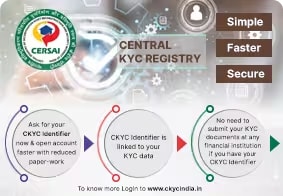Enjoy Zero Charges on All Commonly Used Savings Account Services
- About Us
- MD & CEO letter about the bank
- MD & CEO
- Our History
- Letter to Shareholders on the 1st Annual Report after Merger
- Letter to Shareholders on the 2nd Annual Report after Merger
- Letter to Shareholders on the 3rd Annual Report after Merger
- Letter to Shareholders on the 4th Annual Report after Merger
- Board of Directors
- Awards & Accolades
- News Room
- Investors
- Careers
- ESG
-
Customer care hotlineCall 1800 10 888
-
As per amendment in the Income Tax Rules, PAN or Aadhaar are to be mandatorily quoted for cash deposit or withdrawal aggregating to Rupees twenty lakhs or more in a FY. Please update your PAN or Aadhaar. Kindly reach out to the Bank’s contact center on 1800 10 888 or visit the nearest IDFC FIRST Bank branch for further queries.
-
-
FinFIRST Blogs
If you earn an income, you likely pay tax on it. However, that doesn’t mean that all your income is taxable. Taxable income remains after your total annual income gets adjusted after considering deductions, exemptions and allowable expenses. Thus, to understand taxable income, you must understand total income and the aforementioned adjustments.
What is total income?
Gross total income for the financial year includes all income received or receivable, along with income to be clubbed. Such income includes salary, pension, business and professional income, capital gains, income from other sources, gifts, royalties, etc. Carry-forwarded amounts are also adjusted to calculate the gross total income.
Different taxpayers and their taxability
The Income Tax Act has divided taxpayers into these categories:
- Resident individuals
- Non-resident individuals
- Hindu Undivided Family (HUF)
- Association of Persons (AOP)
- Body of Individuals (BOI)
- Firms
- Companies
Besides, individuals are further divided into three categories:
- Individuals below the age of 60
- Individuals above the age of 60 but below 80
- Individuals above the age of 80
The income tax slabs are the same for resident and non-resident individuals, HUFs, AOPs, BOIs and any other artificial juridical person. However, senior and super-senior citizens have higher income tax rebate slabs.
Partnership firms, including Limited Liability Partnerships and local authorities, are taxed at the same rate of 30%. Different income tax rates apply to domestic companies, foreign companies and cooperative societies.
Also read: https://www.idfcfirstbank.com/finfirst-blogs/finance/8-tax-saving-investment-plans
READ MORE
Sources of taxable income
Here are the possible sources of income that can result in tax liability:
- Salary and pension income earned by employed and retired individuals, respectively
- House property income earned by any assessee with a let-out property.
- Profit or gain from business and profession is the income earned by self-employed professionals and businesses. Professionals like doctors, lawyers, architects, insurance agents, etc., report their income under this income head.
- Capital gains income from the sale of assets which can be earned by any entity that invests in assets and sells them for a profit later. These assets include house property, mutual funds, shares, etc.
- Income from other sources, including interest income from bank accounts and deposits, dividend income from equity, lottery income, etc.
- Royalty income on patents, published works, etc., is taxable under the income head profit or gain from business or profession after adjusting the deductions provided under section 80QQB.
What are exemptions in income tax?
Exempt income is tax-free income; your income could be partially or fully exempted from tax. Examples of exemptions include agricultural income, long-term capital gain of up to Rs 1 lakh on equity, house rent allowance, leave travel allowance, etc.
Also read: https://www.idfcfirstbank.com/finfirst-blogs/finance/is-tax-refund-amount-taxable
What are deductions in income tax?
Deductions are eligible expenses and investments deducted from the total income while calculating the taxable income. The Income Tax Act provides deductions under various sections like 80C, 80D, 80G, 80TTA, etc.
Calculation of taxable income
Your taxable income can be calculated under two regimes: old and new.
Old Regime: Under the old regime, you can claim exemptions on allowances like house rent allowance, leave travel concession, etc. Deductions under the various sections of the Income Tax Act are also available under the old regime. These deductions are covered under sections 80C to 80U. Besides, a deduction of Rs 50,000 is allowed on the interest paid on home loans under Section 80EE for certain specified loans.
The income tax slabs under the old regime are:
- Up to Rs 2.5 lakh – no tax
- Between Rs 2.5 lakh and Rs 5 lakh – 5%
- Between Rs 5 lakh and Rs 10 lakh – 20%
- Above Rs 10 lakh – 30%
Besides, there is no tax if your income is less than Rs 5 lakh during a financial year.
New Regime: The new regime offers a lower tax rate but does not allow the exemptions and deductions offered under the old regime. The Union Budget 2023 has increased the tax-free income slab under the new regime to Rs 7 lakh. Accordingly, if your income is less than Rs 7 lakh, you do not have to pay any income tax.
The income tax slabs under the new regime are:
- Up to Rs 3 lakh – no tax
- Between Rs 3 lakh and Rs 6 lakh – 5%
- Between Rs 6 lakh and Rs 9 lakh – 10%
- Between Rs 9 lakh and Rs 12 lakh – 15%
- Between Rs 12 lakh and Rs 15 lakh – 20%
- Above Rs 15 lakh – 30%
The number of slabs has been reduced from six to five under the new regime. Besides, the benefit of the standard deduction is now available under both new and old regimes.
Pro Tip: Using income tax calculators and comparing your tax liability under both regimes is a good idea before choosing one. Your tax liability changes with your income level and eligible deductions.
Gross income vs taxable income
To summarise the above discussion, gross and taxable income differ in terms of the stages of calculation and their respective tax implications.
Gross total income is the aggregate of all income earned by a person during the financial year. Taxable income is the amount received after adjusting the deductible portions from the gross total income.
Deductions – Gross total income is the income from the different heads of income. Exemptions on income get adjusted at the “Income head” level. For instance, exemptions on your salary income get adjusted while calculating your Income from Salary. When you deduct the Chapter VI-A deductions, you get net taxable income.
Tax calculation – Tax liability is calculated on the taxable income, not the gross income.
Conclusion
While you must understand your tax liability and plan for it in advance, knowing the calculations behind annual income and tax liability is useful. Paying income tax is easier than ever with your IDFC FIRST Bank savings account.
You can do so through Payment Gateway, NEFT and RTGS modes. If you want to reduce your tax liability, you can do so with your IDFC FIRST Bank savings account. It provides a window to tax-friendly investment opportunities like ELSS mutual funds, tax-saver fixed deposits, PPF, and more.
Open your IDFC FIRST Bank savings account today to make your tax planning and investments effortless.
Disclaimer
The contents of this article/infographic/picture/video are meant solely for information purposes. The contents are generic in nature and for informational purposes only. It is not a substitute for specific advice in your own circumstances. The information is subject to updation, completion, revision, verification and amendment and the same may change materially. The information is not intended for distribution or use by any person in any jurisdiction where such distribution or use would be contrary to law or regulation or would subject IDFC FIRST Bank or its affiliates to any licensing or registration requirements. IDFC FIRST Bank shall not be responsible for any direct/indirect loss or liability incurred by the reader for taking any financial decisions based on the contents and information mentioned. Please consult your financial advisor before making any financial decision.
The features, benefits and offers mentioned in the article are applicable as on the day of publication of this blog and is subject to change without notice. The contents herein are also subject to other product specific terms and conditions and any third party terms and conditions, as applicable. Please refer our website www.idfcfirstbank.com for latest updates.


 What's special about us
What's special about us




















